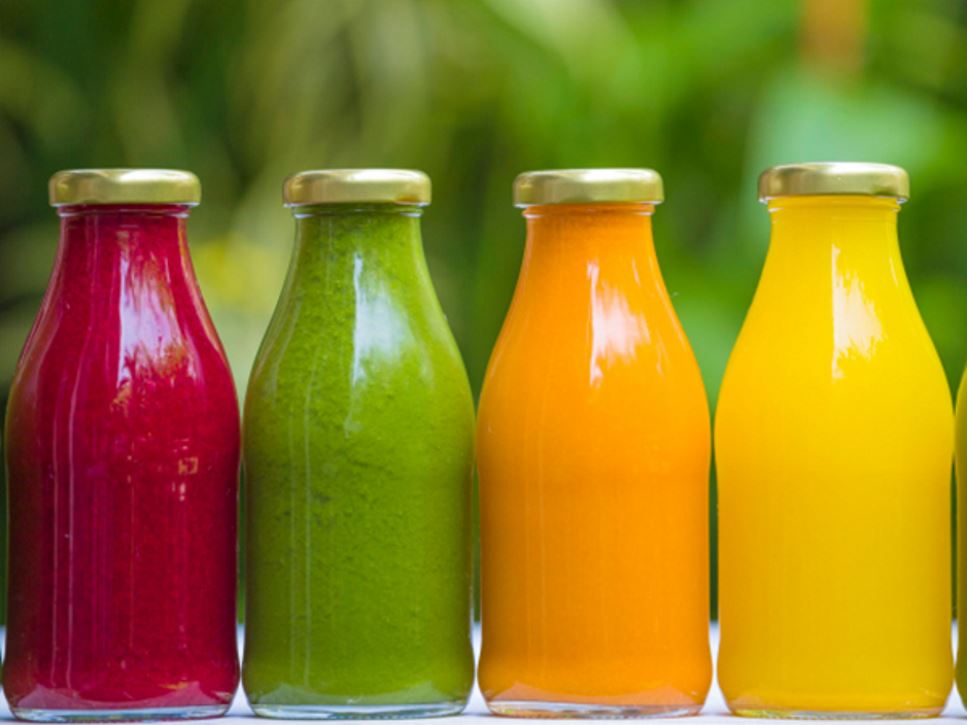Sometimes it seems like everyone is talking about doing a "detox" or considering a "cleanse." Detox diets often are misunderstood — especially since your body already comes equipped with a detoxification system. Understanding how detox works may help clear up some confusion.
How the Body Naturally Detoxifies
Detoxification is a process that the body performs around the clock using important nutrients from the diet. It's the process that transforms toxins so they can be removed from the body. They fall into two main categories: toxins that are made in the body from normal body functions, and those that come from outside the body through food, beverages or the environment.
Toxins that are produced in the body include lactic acid, urea and waste products from microbes in the gut. External toxins may include pesticides, mercury in seafood, lead from car exhaust and air pollution, chemicals in tobacco products and drugs or alcohol. Because toxins are potentially dangerous to human health, they need to be transformed and removed through urine, feces, respiration or sweat. Each person's ability to detoxify varies and is influenced by environment, diet, lifestyle, health status and genetic factors, suggesting some people may require more detoxification support than others.
If the amount of toxins to which a person is exposed exceeds his or her body's ability to excrete them, the toxins may be stored in fat cells, soft tissue and bone, negatively affecting health. This is the rationale behind the use of practices that support the body's own detoxification capabilities, but more research is needed.
Most detoxification programs recommend removing highly processed foods and foods to which some people are sensitive, such as dairy, gluten, eggs, peanuts and red meat. These programs also recommend eating mostly organic vegetables, fruit, gluten-free whole grains, nuts, seeds and lean protein. Other programs recommend fasting, a potentially risky practice for some people, which may actually suppress detoxification pathways in the body. This is why many health care professionals advise against this practice.
Many people claim to be experts in detoxification; however, there is a lack of research at this time to support its use. Plus, detoxification programs can vary widely and may pose a risk for some people (such as people with health problems, those with eating disorders, those who take multiple medications, and pregnant or breastfeeding women).
8 Ways to Support Your Body's Natural Detox
Detoxification support doesn't need to consist of a rigorous plan; doing some or all of the following can support your body's natural detoxification:
- Stay hydrated with clean drinking water.
- Eat five to nine servings of fruits and vegetables per day.
- Consume dietary fiber each day from vegetables, fruits, nuts, seeds and whole grains.
- Eat adequate amounts of lean protein, which is critical to maintaining optimum levels of amino acids that act as detoxification enzymes.
- Consult your health care provider or registered dietitian nutritionist if you're interested in taking a multivitamin/multimineral to fill any gaps in a healthy diet.
- Eat naturally fermented foods such as kefir, yogurt, kimchi and sauerkraut — these may help promote a healthy gut.
If you have questions about your eating style and its role in supporting the body’s detoxification, check in with a registered dietitian nutritionist. RDNs can provide sound, easy-to-follow personalized nutrition advice to meet your lifestyle, preferences and health-related needs.
References
Find a Nutrition Expert
Looking for credible nutrition information and recommendations? The Academy of Nutrition and Dietetics' network of credentialed food and nutrition practitioners are ready to help!

